Last updated: October 4, 2023
Article
Crayfish Corps Resource Brief 2022
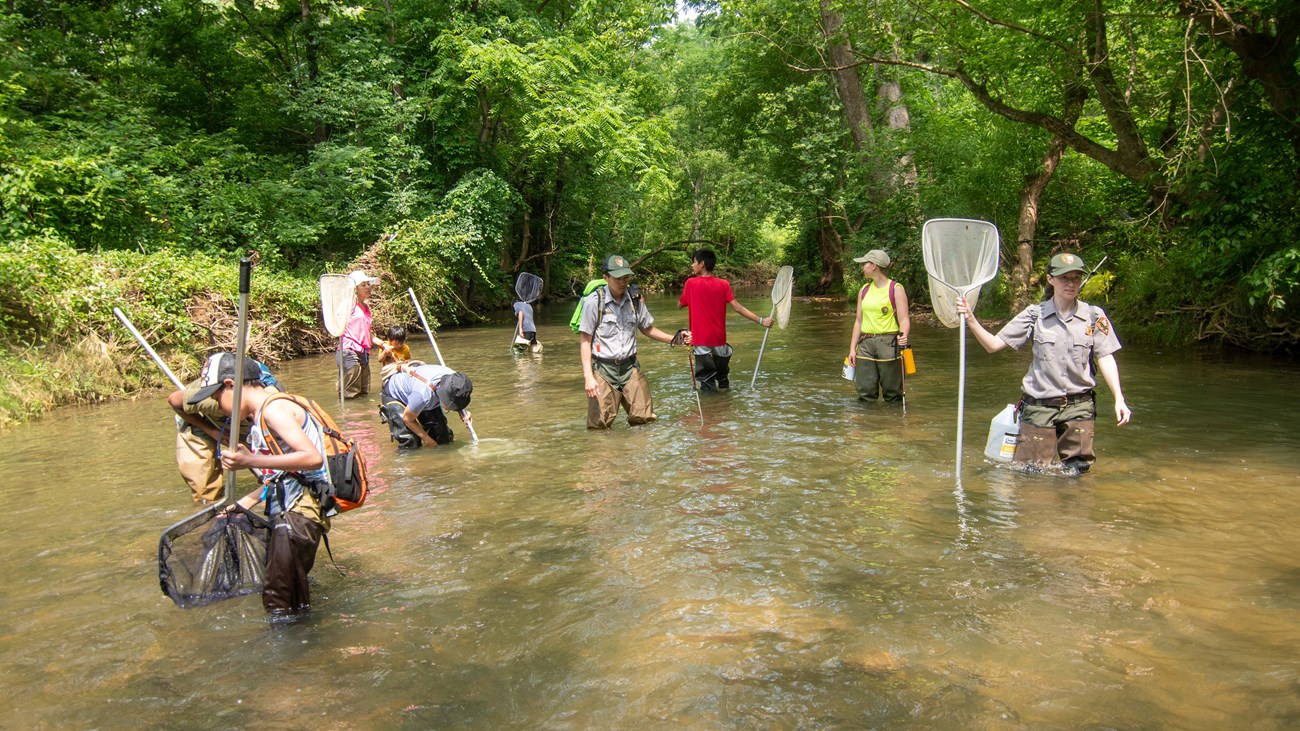
NPS Photo/G. Purifoy
Crayfish Corps is a management action led by Natural Resource staff and supported by volunteers, which aims to limit the effects of invasive non-native crayfish in Valley Creek. Valley Creek, a tributary of the Schuylkill River, is an Exceptional Value Waterway and Class A wild trout fishery.
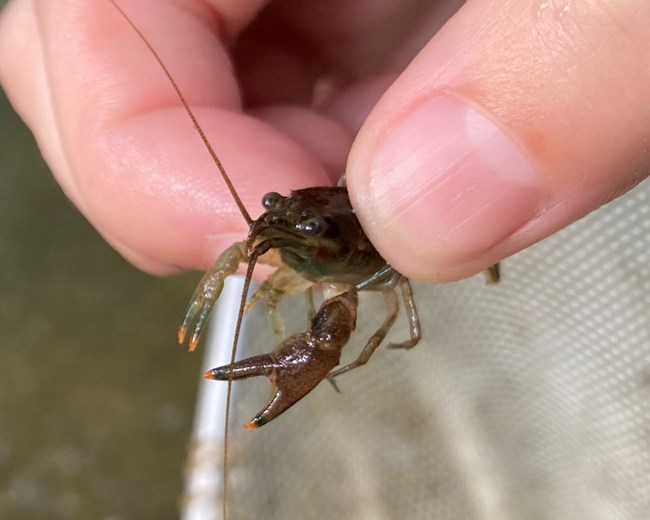
NPS Photo / G. Purifoy
2009 - 2022 Status & Trends
In 2008, the invasive rusty crayfish (Faxonius rusticus) (Figure 1) was first documented in Valley Creek. In response, staff established the volunteer Crayfish Corps to suppress the invasion of rusty crayfish.
The rusty crayfish is native to parts of Ohio, Indiana, and Kentucky. It is larger and more aggressive than the park’s native crayfish, enabling the rusty crayfish to out-compete natives for food and shelter. The rusty crayfish also has the potential to disrupt the trout fishery in Valley Creek by eating trout eggs as well as most of the prey items for the fish. Wherever the rusty crayfish has been introduced with no subsequent management action, all other crayfish have been greatly reduced or eliminated.
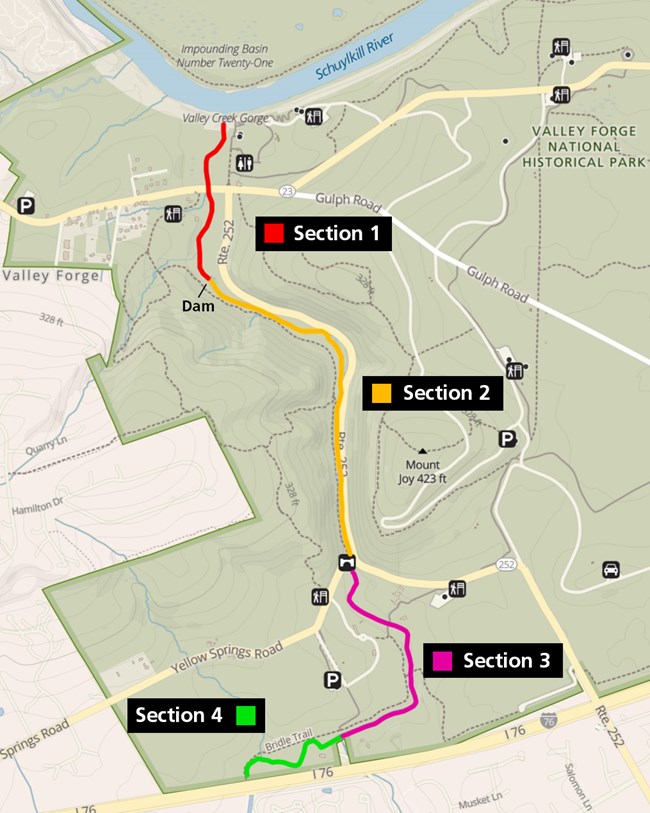
NPS Graphic
Valley Creek is divided into four sections (Figure 2). These sections are defined by physical barriers (dams and bridges) as well as varying stream conditions. Volunteers typically remove crayfish within only one section of the stream per Crayfish Corps event.
From May through September, volunteers from AmeriCorps, scout troops, families, schools, community organizations, corporate groups, and individuals assisted park staff to capture and remove rusty crayfish.
Over the past eleven years, volunteers have removed a total of 28,664 rusty crayfish from the creek. Another 79,534 native crayfish have been documented and returned to the creek (Figure 3).
Prior to 2020, the Crayfish Corps had over 300 volunteers and 1000+ volunteer hours annually. In 2020, all crayfish removal was done by park staff due to the pandemic. In 2022, the park was able to resume hosting regular public and corporate volunteer events, and supported 192 volunteers contributing 762 hours towards removal of the rusty crayfish. More than half of the volunteers and volunteer hours were youth under the age of 18.
Complete eradication of the rusty crayfish is not feasible. The goal is to maintain a ratio of not more than 4:1 of native to rusty crayfish (e.g., 20% or less rusty crayfish), in Valley Creek upstream from the dam along Route 252 (Figure 2).
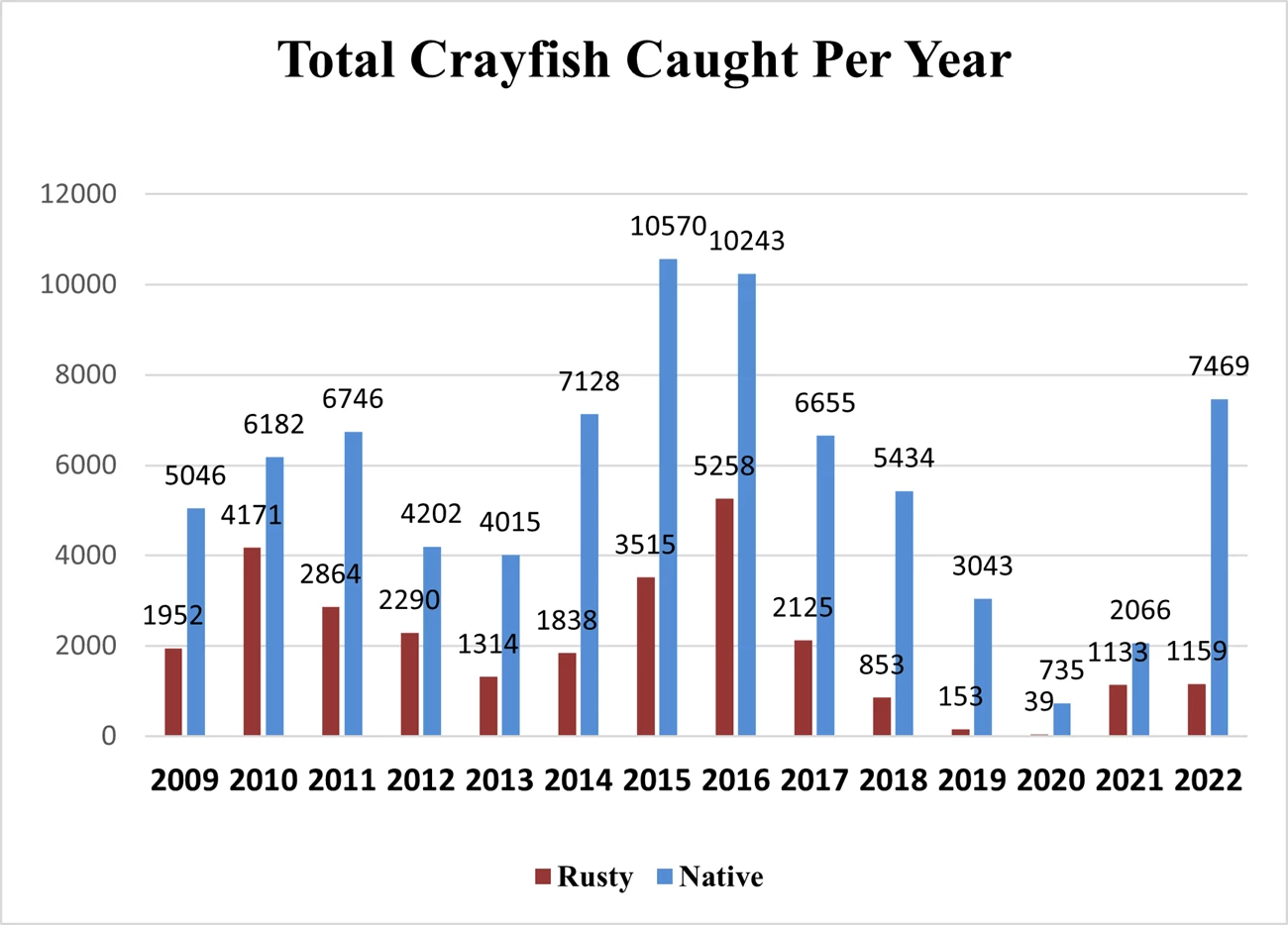
NPS Graphic

NPS Graphic
Since group size, duration, and stream conditions are variable, the crayfish data are standardized as number of crayfish caught per person-hour spent in the stream. This standardization allows park biologists to better evaluate which sections need more work and whether the park is reaching its goals (Figure 5).
Total rusty crayfish catches increased in 2022 to 1,159 individuals from 1,133 in 2021. (Figure 3). The majority of these rusties were caught in section 1, where the percentage of rusty crayfish captured is consistently greater in comparison to sections 2-4. The dam separating sections 1 and 2 acts as a barrier and probably slows upstream movement from the Schuylkill River. Besides section 1 below the dam, the rusty crayfish population has been maintained nearly at or below the 20% threshold goal in recent years
(Figure 4).
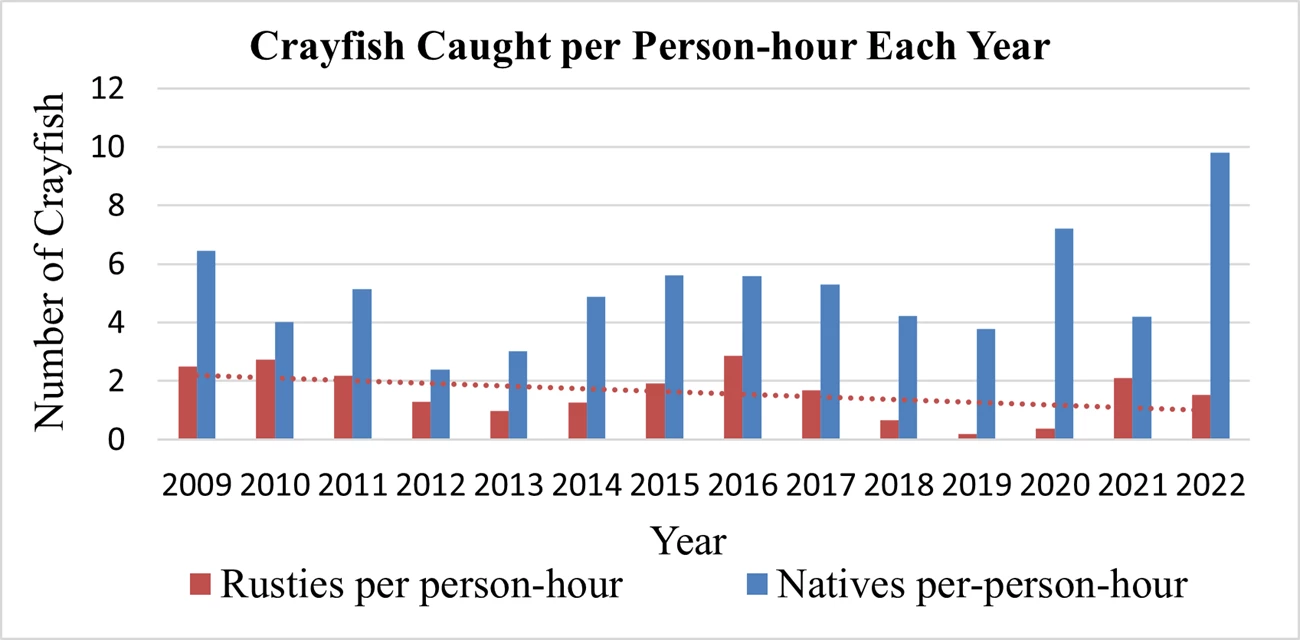
NPS Graphic
Conclusions
Section 2 was a large focus of the Crayfish Corps efforts this year. In 2022, the percent rusty crayfish captured for section 2 decreased by nearly 10% compared to 2021, achieving the goal of rusty maintenance under 20% (Figure 4).
Catches of rusty crayfish per person-hour were also lower in 2022 than in 2021. This data continues the overall trend of decline that began in 2009 (Figure 5).
The trend of decreasing rusty catches per-person hour over time and maintenance of less than 20% rusty crayfish above the dam is encouraging as evidence of the effectiveness of the program.
The continual success of Crayfish Corps is entirely due to the hard work and enthusiasm of all the volunteers involved in the program. Thank You!
Get Involved
You can contact Natural Resource Management staff to join the Crayfish Corps and find more information about signing up to volunteer at the link below.
Learn how to sign up and see upcoming Crayfish Corps dates
Natural Resource Management Staff
Kate Jensen
Natural Resource Manager
kate_jensen@nps.gov
Ashley Kroon
Biological Science Technician
ashley_kroon@nps.gov
This report prepared by:
Samantha Ferguson
Natural Resource Management Intern
